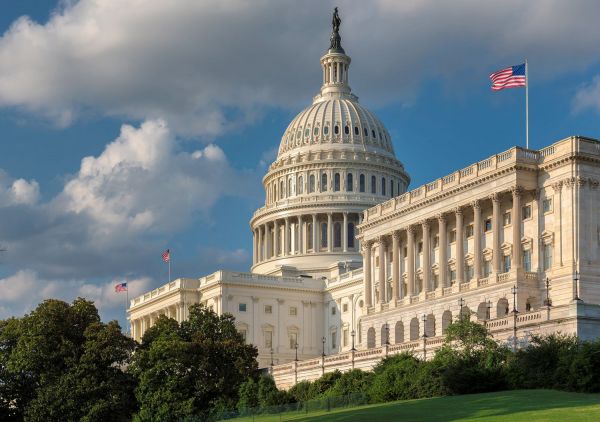WASHINGTON, DC – During the 2016 presidential campaign, Donald Trump promised to renegotiate the North American Free Trade Agreement (NAFTA), which he called “the worst trade deal ever made.” As president, he did so. The result became the United States Mexico Canada Agreement (USMCA), which Trump signed into law in January 2020 and touted as one of his signature achievements in a State of the Union address.
 Now, a number of national, state, and regional cattle and ranch associations – most all that politically endorsed Trump – are, “seeking immediate relief from the USMCA.” In an April 19 letter, 18 associations including R-CALF USA, Independent Beef Association of North Dakota and the South Dakota Stockgrowers Association, have written a letter to Agriculture Secretary Tom Vilsack and to United States Trade Representative Katherine Tai, outlining their grievances.
Now, a number of national, state, and regional cattle and ranch associations – most all that politically endorsed Trump – are, “seeking immediate relief from the USMCA.” In an April 19 letter, 18 associations including R-CALF USA, Independent Beef Association of North Dakota and the South Dakota Stockgrowers Association, have written a letter to Agriculture Secretary Tom Vilsack and to United States Trade Representative Katherine Tai, outlining their grievances.
When Trump replaced the 27 year NAFTA with the USMCA, ag organizations including the American Farm Bureau Federation recommended swift passage, National Cattlemens Beef Association called it a victory for U.S. cattle producers, and the National Farmer’s Union applauded its passage.
But yesterday’s letter addressed to Trade Representative Tai and Agriculture Secretary Vilsack states that the USMCA, “more than any other multilateral free trade agreement,” has “severely weakened” the United States’ live cattle supply chain and the rural communities it supports.”
Included in the letter were two charts, one showing that during the past seven years – and under NAFTA – the United States imported from Mexico and Canada about two and one-half times the value of beef and cattle that it exports, importing over $4.4 billion worth of beef and cattle but only exporting less than $2 billion of the same commodities.
The second chart depicts quantity-based USMCA trade and shows the U.S. imported about three and one-half times the quantity of beef and cattle that it exported.
The ranch/cattle groups contend that the USMCA is working well for multinational meatpackers, processors and importers who,” benefit greatly from sourcing more and more foreign cattle and unlabeled beef from Mexico and Canada.”
But they argue those benefits for the few are, “causing irreparable harm to America’s family farm and ranch cattle producers who cannot be expected to prosper unless relief from the USMCA is granted.”
The letter also describes how multinational corporations exploited domestic cattle producers by importing tens of thousands of slaughter-ready cattle from Canada. The communication’s authors also charge that Canada deprived U.S. cattle producers access to their own markets following the outset of the COVID-19 pandemic.
The ranch groups concluded by urging the Office of the U.S. Trade Representative and Secretary Vilsack “to take decisive action to rebalance the untenable cattle and beef trade imbalance memorialized under the USMCA.”
Those representing the cattle and ranch groups are asking Vilsack to somehow enact mandatory country of origin labeling (COOL) within the parameters of USMCA – a trade agreement that was voted for by Congress and signed by Trump – minus any labeling language.

Those cattle and ranch associations represented in the letter are proposing, “At the very least, and as a first step, we urge you to take steps to assist America’s cattle farmers and ranchers by giving them the ability to compete in their own domestic market by differentiating their USA-produced beef from foreign beef and beef from foreign cattle.”
At the time of passage, SD Senator John Thune said in a release from his office, “I am particularly excited about the benefits that USMCA will bring for farmers and ranchers.” SD Senator Mike Rounds released this statement. “I voted in favor of the USMCA trade deal, which will expand trade opportunities for South Dakota’s farmers, ranchers and manufacturers.” SD House Representative Dusty Johnson said, “USMCA further expands exporting opportunity for America’s farmers and ranchers.”
The USMCA has a 16-year sunset clause — meaning the terms of the agreement expire, or “sunset,” after 16 years. The deal is also subject to a review every six years, at which point the US, Mexico, and Canada can decide to extend the USMCA.












